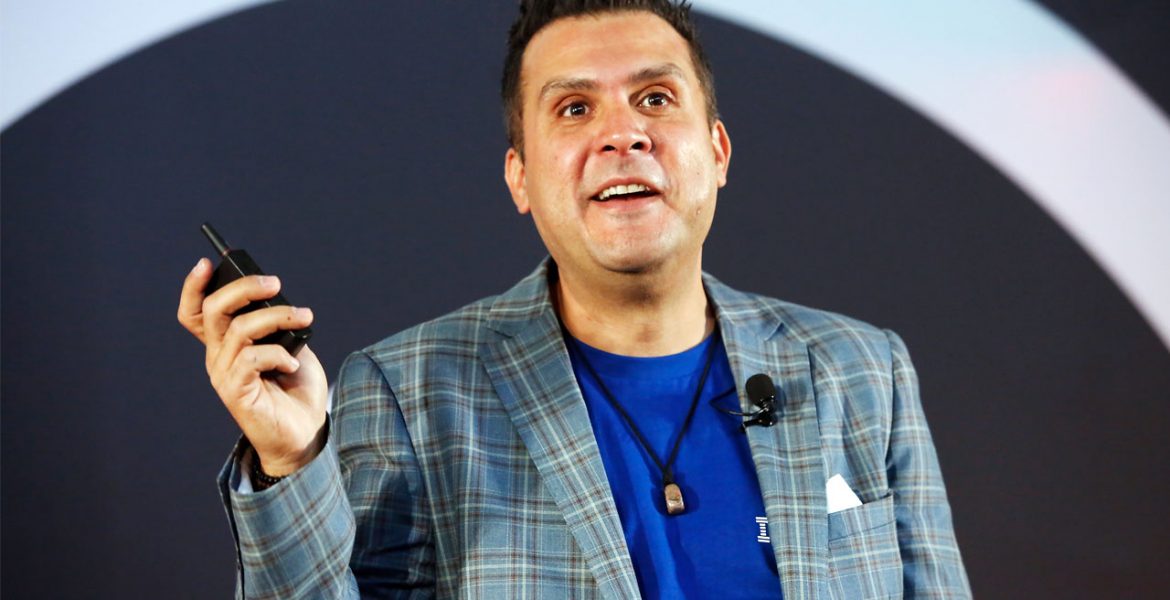In this series we ask the tough questions of an expert in different fields of marketing to get behind the headlines and into the issues that matter. This week Lucio Ribeiro, a lecturer in artificial intelligence, is in the hot seat to discuss AI marketing.
AI is just a fancy word for algorithm and has too much hype. Discuss.
There’s hype, I can’t deny that. But once you isolate the hysteria and Hollywood fantasy of AI from the reality, you can see it is already in broad use across academia, the military, government and the private sector.
Historically technologies that stick have their beginnings in academia, moving into military hands and governments (or vice-versa) and then entering the private sector. AI has followed the same trajectory.
A Google search? It’s an AI algorithm. Browsing yours Newsfeed? AI drives that. A playlist on Spotify? It’s AI right there. Logged into your bank account? Guess what? It’s an AI algorithm. Sitting drinking a wine on a flight? It’s mostly an AI algorithm monitoring that flight.
Right now, AI is mostly being used to augment human intelligence and human capabilities, focused on narrow tasks. Finding patterns, accelerating tasks, automating procedures, categorisation. The promise of general AI that can quickly learn new tasks without supervision remains uncertain.
In marketing, I’d say that AI and humans together can make a big impact. The biggest impact that good marketing teams can grant to their organisation is the aptitude to first see the world from the consumer’s point of view and then make appropriate changes to implement this perspective in products or services.
“Mark my words – AI is far more dangerous than nukes”. So says Elon Musk, one of the leading voices in the tech world. Is he right?
In 1948 we were telling the same story. The reality over the next 70 years has, thankfully, been far less interesting.
AI – machine learning, reinforcement learning etc – is a tool to be used by people. That means when it is used responsibly it can be an immense force for good. But we need to protect against human fallibility and misuse of such powerful technology. That’s far more worrisome, and realistic, than AI ‘taking power’ itself.
So, to that end, Elon Musk does have a point, and in many regards his view is right. The depth of the technology in the hands of totalitarian governments and irresponsible companies has the potential to do irreparable damage. Most opponents of Musk’s standpoint use the beneficial AI argument, but don’t offer a counter-argument to his points.
The reality is the AI of today is closer to a spreadsheet on steroids than killer robots. It’s more of a box of applied statistics.
There are other real problems now that require more attention like bias built into models, AI security and explainable AI. If you want to know more about these issues, then you’ll have to come to my presentation.
At what point should we all be worried about losing our jobs to robots?
I wouldn’t lose sleep over a robot taking your job just yet. We’ve got bigger issues in the macro-economy like globalisation and the further establishment of the gig economy.
With narrow AI and automation, certain categories of activities are technically more easily automatable than others, mainly activities that rely on highly predictable tasks such as research, data handling and the like.
We are in the early stages of a drastic shift in the labour market because of AI. However, it is undeniable that skills will shift too.
The World Economic Forum predicts 35% of skills necessary for a job today will be different in five to ten years. A child today can expect to change jobs at least seven times over their lives. The problem is five of those jobs don’t exist yet.
Whilst machines will take on the more mundane tasks, this will allow us to concentrate on those more distinctly human things like creativity – something everyone in the marketing industry should welcome.
Will we ever achieve AI sentience as has been the promise of many a science fiction novel? How far away from that are we?
Not in my lifetime. It might come, but I doubt anyone reading this will be around to see it.
But that makes it even more imperative for us to be looking at ethics, standards and legislation to protect future generations who will inherit the good and the bad aspects of our decisions today.
The good news is there are a lot of top minds already working on these things. Currently in Australia, where I am based, the government and Standards Australia are working on AI. I’ve been participating in the consultation and working with subcommittees to define AI. The definition and standardisation will support the ongoing development of the AI applications that are not yet known.
The best thing a marketer can do right now, though, to prepare for the future, is to start a culture of data in their companies or agency.
Lucio’s presentation, Demystifying AI for the Future is on at 1:40pm on Tuesday July 30 on the Verizon Media Stage. View the schedule and buy tickets here.

